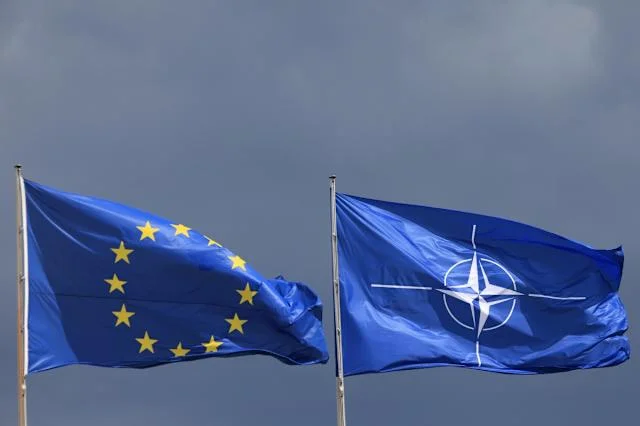A storm is brewing within the North Atlantic Treaty Organization (NATO), as a sprawling investigation into shady arms contract deals threatens to tarnish its reputation. Reports from three Belgian outlets and a Dutch investigative platform have exposed claims that former and current NATO staff pocketed bribes between 2021 and 2025.
The accusations center on the NATO Support and Procurement Agency (NSPA), the Luxembourg-based body handling multi-billion-euro defense purchases for the alliance’s 32 member nations.
The allegations are explosive: insiders allegedly accepted tens of thousands of euros to leak sensitive information to defense companies vying for high-stakes contracts. This betrayal has sparked outrage and a fierce push to root out corruption within one of the world’s most powerful military alliances.
Uncovering the Scheme
The probe, launched in May 2025, led to the arrest of at least three individuals tied to the alleged bribery. Dubbed “Operation Clean Hands,” the investigation unites multiple agencies, including the NSPA, the FBI, and European judicial authorities.
Their mission? To unravel a web of illicit payments and favoritism that may have skewed NATO’s massive procurement process, worth billions annually.
Investigators are digging deep, chasing leads to uncover the full scope of the scandal. The implicated employees allegedly fed confidential data to select firms, giving them an unfair edge in securing lucrative deals. The revelations have sent shockwaves through NATO’s ranks, raising questions about oversight and trust.
NATO’s Response
On October 20, 2025, NATO issued a firm statement, doubling down on its zero-tolerance stance against fraud and corruption. “We are committed to transparency and integrity,” the alliance declared, vowing to cooperate fully with the ongoing investigation.
The NSPA, tasked with managing everything from fighter jets to missile systems, is now under intense scrutiny to ensure its processes are airtight.
The alliance’s leadership is scrambling to contain the fallout, emphasizing that any breach undermines the trust of member states and their citizens. With defense spending critical to global security, NATO can’t afford to let corruption fester.
A Blow to Credibility
The scandal hits at a sensitive time, as NATO navigates rising global tensions and defense demands. The NSPA’s role is pivotal, pooling resources to secure cost-effective deals for tanks, aircraft, and tech across the alliance.
Allegations of insider leaks threaten to erode confidence among the 32 nations relying on fair procurement to bolster their defenses.
The arrests in May marked a turning point, exposing vulnerabilities in a system meant to be bulletproof. European and U.S. investigators are now combing through financial records and communications, determined to identify all players in the scheme.
Broader Implications
This isn’t just a NATO problem it’s a wake-up call for global defense networks. Corruption in arms deals risks inflating costs and weakening security, especially when trust is paramount.
The involvement of multiple agencies in “Operation Clean Hands” signals a no-holds-barred approach to restoring accountability.
As the probe widens, questions swirl about how deep the rot goes. Were these isolated acts, or part of a larger network? The answers could reshape NATO’s procurement rules and spark reforms across the defense industry.
A Fight for Trust
The bribery allegations are a gut punch to NATO’s credibility, but the alliance is fighting back. With investigations ongoing and no stone left unturned, the focus is on justice and prevention.
The world is watching as NATO battles to reclaim its integrity, ensuring that its mission to protect remains untarnished by greed.




















